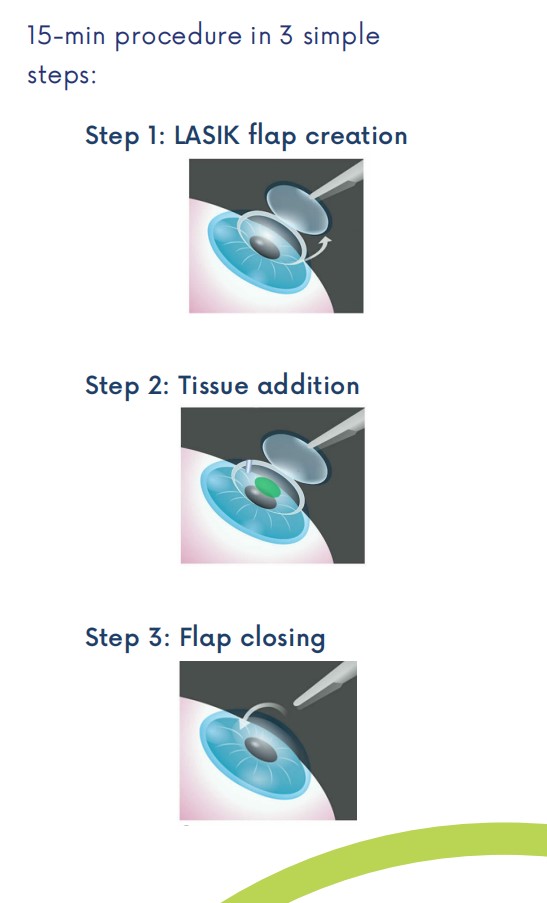Nearsightedness is a common vision problem affecting millions of people. Until now, myopia (nearsightedness) has been treated with surgical methods such as LASIK or aids such as glasses and contact lenses. However, there is now a new and effective treatment method – collagen implantation.
In this blog post, we will discuss what collagen implantation for near vision treatment is, how it works and its advantages over other treatment methods.
What is Collagen Implantation?
Collagen implantation is a minimally invasive surgical procedure that involves placing an implant made of human corneal collagen on the corneal surface of the eye. This implant is completely biological and organic, not a foreign body. Although it has the same basic building blocks as the collagen used in facial and lip fillers, which is sure of its safety, we are talking about a product specially processed for the eye. Thanks to this structure, the collagen used is easily accepted by the body and significantly reduces the risk of allergic reactions.
What are the Advantages?
Collagen implantation offers many advantages over other treatment methods:
- Minimally Invasive: There is no need to go inside the eye, so the risks are lower.
- Fast Recovery: The procedure is short and allows you to return to normal life the next day.
- Painless: The procedure is usually painless.
- May be Reversible: Although more research needs to be done on the potential for the procedure to be reversible, this possibility exists. This point is important and should be discussed with your doctor.
- Simpler and Shorter than LASIK: It is simpler and offers a shorter procedure time compared to LASIK surgery.
- Allotex and Reliability: Currently, Allotex stands out in the market for collagen implantation treatment. Working in collaboration with eye banks in the US, Allotex offers collagen implants derived from tested, sterilized and packaged human corneas.

Important Note: Although collagen implantation is a promising procedure, it may not be suitable for everyone. Before considering this treatment, you should consult an ophthalmologist and be informed about the possible risks and benefits of the procedure.
Conclusion:
Collagen implantation is a new and promising approach to near vision treatment. It offers advantages over LASIK surgery with its minimal invasiveness, fast recovery time and potential reversibility. However, before considering the treatment, you should consult an ophthalmologist and determine whether the procedure is suitable for you.
Source

